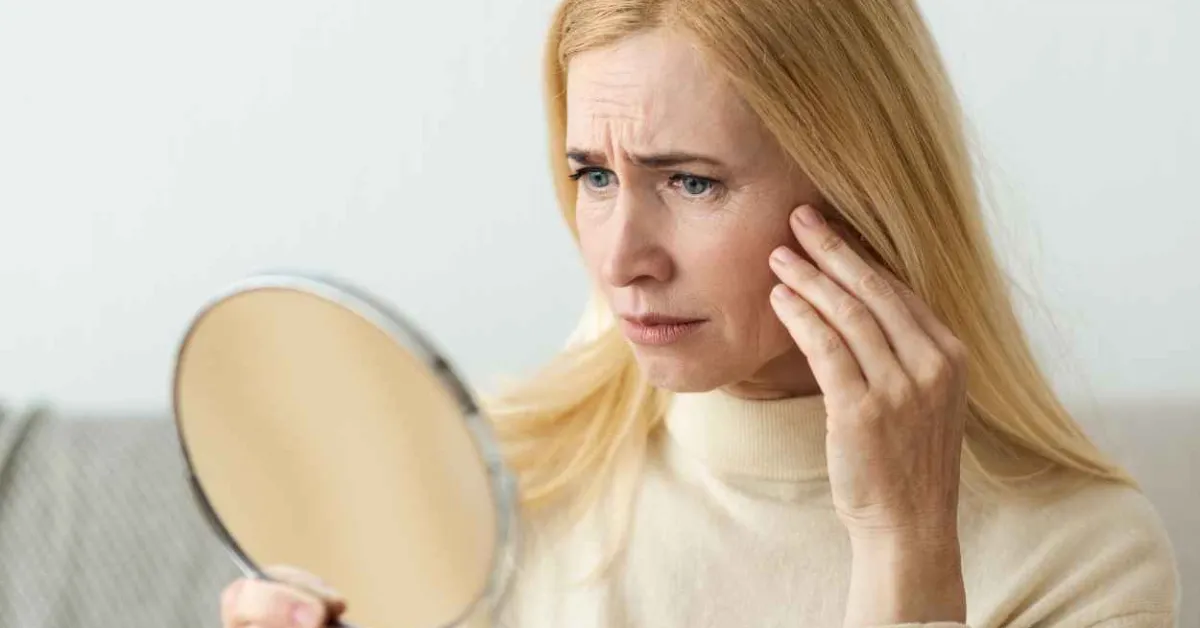 Vinay Kumar Singh.
Vinay Kumar Singh.
Head-Formulation
Kumar Organic Products Research Centre Pvt. Ltd.,
Bengaluru
Email : formulation_krc@kopresearchcentre.net
Consumers complain about their complicated, stressful lives, and many relate this to negative changes in their appearance. Stress is universally ranked as a key negative influence on consumers' wellbeing. Mintel's 2025 Trend Power Play outlines that younger consumers in particular are trying to de-stress and recharge their skin from the daily assault they receive from both internal and external factors.
Anti-stress benefits are being marketed more actively by brands. The percentage of global facial skin products that carry a stress-related claim have risen four-fold since 2014.
Anti-stress skincare is usually aimed at reducing inflammation caused by stress and repairing the impaired skin barrier function.
Stress releases hormones in our system, such as cortisol which is the chemical known to stimulate physiological responses in our bodies.
An unexpected and excessive release of cortisol due to stress will disrupt the other hormones, which triggers an increase in sebum production, leading to sudden breakouts.
Endocrine system linked to hormones works in a well-organised fashion when everything with our body and mind is fine. However, whenever there is any kind of stress, this system falters and aggravates multiple health conditions as well as skincare concerns, such as eczema, breakouts or hair loss. Due to poor sleep, a collection of fluids can also occur below the lower eyelid area and increase the appearance of under-eye bags,”
While a good night’s sleep may be the cure for everyday stressors at work, the events of the past year have disrupted life in more ways than one.
After a tumultuous year of Covid-19, many consumers report a wide variety of skincare issues, including increased cases of adult acne, rising claims of sensitive skin, and irritation. What’s behind the rise in skincare problems? Consumers and experts alike blame a common culprit: stress.
There are extensive consequences associated with feeling stressed out. Beyond the negative physical and emotional impacts that stress can have on your body, it can also create some serious havoc for your skin. Medical experts have long suggested that feelings of continued and intense stress can result in premature signs of skin aging, inflammation, and an increase in acne
With no discernible end to the pandemic in sight, it can seem like a tall order to cut stress out of our lives entirely.
This is where anti-stress skincare comes in as a saviour for fatigued skin and a stressed mind. Unless aromatherapy-based, anti-stress skincare may not actually do much to alleviate mental stress, but it is able to soothe the outward symptoms of it.
Each generation has a unique experiential history that defines their current needs and concerns. For younger generations, the internet has made connectivity a daily reality. They are therefore more inclined than older generations (such as Baby Boomers) to take action rather than accept that their appearance is governed by nature.
In the US, the iGeneration (i.e. those aged 9-21) prioritises coping with stress. iGens believe that diet and the methods by which stress is controlled have a direct impact upon complexion, and 31% of older Millennials believe that skincare products have an impact on appearance.
As a result, younger consumers are adopting in/out wellness plans to make them feel and look better. Mintel's Make It Mine trend, brands need to embrace this wellness narrative and develop products geared towards alleviating such consumers' concerns with their appearance.
Adaptogens have a significant role to play in anti-stress skincare. “The common hero ingredients include reishi mushroom, ashwagandha, licorice, turmeric and holy basil for combatting stressful skin
There are extensive consequences associated with feeling stressed out. Beyond the negative physical and emotional impacts that stress can have on your body, it can also create some serious havoc for your skin. Medical experts have long suggested that feelings of continued and intense stress can result in premature signs of skin aging, inflammation, and an increase in acne.
Carrying around all this stress affects our body in so many ways."It causes fatigue, insomnia, hair loss, acne, increased picking, slowed healing, dry, dull skin, and much more." In a year that's included so much uncertainty, stress has been particularly high, and there is an element of relaxation associated with using these products.
According to Dr. Rogers, anti-stress skincare doesn't directly stop or prevent stress, rather it's intended to encourage self-care. "Anti-stress skin care will not fix stress but the idea behind it is great. They are products designed to make you pause and take care of yourself, to focus on something calming and soothing and in doing so better control your stress," she said.
Joshua Zeichner, the director of cosmetic and clinical research at Mount Sinai Hospital further explained that anti-stress skincare products are typically created to hydrate and repair the skin barrier, as well as reduce inflammation. However, he did note that many skincare products are multipurpose. "While they can be effective in addressing stress related skin issues, there are many products not specifically labelled as treating stressed skin that can be effective as well," he said.
Even when you don't realize it, stress is likely already the culprit behind some of your most common skincare woes, Kat Bryce, global brand VP at Loum said. "We protect ourselves from so many of the daily assaults on our skin, yet until now there's been no comprehensive solution to protect against stress, despite stress damaging our skin at every level and levels of stress and burnout being the highest they've ever been," she said. That's where anti-stress skincare comes in.
It was due to the stress that consumer experienced of uncertainty. There are extensive consequences associated with feeling stressed out. Beyond the negative physical and emotional impacts that stress can have on our body, it can also create some serious havoc for your skin. Experts have long suggested that feelings of continued and intense stress can result in premature signs of skin aging, inflammation, and an increase in acne.
A US study discovered that stress produces premature aging of the face.
1 Dehydration of the skin.2 Decreased skin luminosity.3 Redness of the skin.
4 Increased wrinkles and eye bags.5 Flaccidity of the skin.6 Increased acne
Skincare like face masks, body oils, and massage tools has always had a stress-relieving aspect to it. However, brands have begun adding a bouquet of calming ingredients well as adaptogens and healing oils to rejuvenate the mind and hydrate skin. The idea is that these reduce inflammation and repair impaired barrier function, thereby helping you achieve great skin.
Natural skincare actives can be used to provide an improved complexion by alleviating the effects of the stress hormone, cortisol.
Products carrying an anti-stress message with common anti-inflammatory ingredients
Chamomile to calm skin
Tony Moly Timeless Ampoule Essence Midnight Activator soothes stressed-out skin and tired pores. It contains an anti-inflammatory staple compound in the form of bisabolol.
Soothing skin with liquorice root
Salon de FlouveilLunage White Cleansing Gel removes makeup and impurities in pores without stressing skin. It contains dipotassium glycyrrhizate; a well known anti-inflammatory ingredient.
Providing relief with calendula extract
Fitne Health Care Organic Calendula Ointment soothes, renews and protects irritated and stressed skin. It is enriched with the common anti-inflammatory Calendula officinalis flower extract.
Neurophroline - a new water-soluble ingredient - targets cortisol
Neurophroline from Givaudan Active Beauty is a water-soluble ingredient prepared using extracts of wild indigo (Tephrosiapurpurea).
It has been shown to reduce skin's cortisol levels while boosting the production of beta-endorphins and detoxifying enzymes. A recent clinical study found that Neurophroline markedly improved the appearance of fatigued skin, reducing redness, evening colour, and enhancing luminosity.
New microalgae blend Algaktiv Zen also targets cortisol
Similarly, the microalgae active blend Algaktiv Zen (by Greenaltech) has been shown to block cortisol's stress-causing factors by binding to the glucocorticoid receptors. In a follow-up clinical study, this microalgae active blend made the skin appear younger looking, reducing wrinkle depth and scaling, and improving skin's radiance.
The benefits associated with these natural active ingredients make them logical additions for brands wanting to create convincing anti-stress/anti-fatigue narratives in-line with younger consumers' needs.
Overnight masks are the ideal format for arming skin against daily stressors
Some 8% of overnight masks launched in 2016 carry an anti-stress claim. Sleeping masks offer many advantages in fighting external stressors and brands can build upon this to drive innovation.
Active ingredients can be incorporated into formulas which normalise or augment the body's reparative processes during sleep. It is also an ideal format for innovations in longer term, sustained active delivery, alleviating the daily effects of pollutants and UV-induced oxidative stresses to improve mental and physical wellbeing.
As per Mintel GNPD 8.4% of overnight masks launched between Jan-Jun 2016 used the term 'stress'
Kumar Organic Products Limited has launched five Bioferments, namely Kopcarotol, Kopraditol, Kopsoyatol, Kopryza & Kopalleum which can be used in products as these have high antioxidant activity.
Kopcarotol is a potent antioxidant, containing vitamins A, B, C, K and phytonutrients like carotenes and pigments, which make it an antioxidant coupled with tyrosinase inhibition activity, Kopcarotol proves to be an skin glowing active.
Typically, following skincare ingredients that can help destress our skin and bring it back to its optimal state.
Holy basil, Calendula, Chamomile, Aloe Vera, Snail secretion filtrate,Propolis – Another wonderful product from bees, Centella Asiatica extract.
Considered a potent adaptogen, tulsi imparts a unique combination of pharmacological actions,that promote well-being, resilience, adaptation to stress and homeostasis. Specific to stress response, there is mounting evidence that tulsi can address physical, chemical, metabolic and psychological stress. For example, it has been found to protect organs and tissues against chemical stress from industrial pollutants and heavy metals, as well as physical stress from prolonged physical exertion, ischemia, physical restraint and exposure to cold and excessive noise. Tulsi additionally has been shown to counter metabolic stress through normalization of blood glucose, blood pressure and lipid levels, and psychological stress through positive effects on memory and cognitive function as well as through anxiolytic and anti-depressant properties. It even demonstrates cortisol-lowering effects.
So to help combat the negative impact of stress on skin, many consumers are turning to trending anti-stress skincare, or products designed to soothe and nourish tired, irritated skin.









